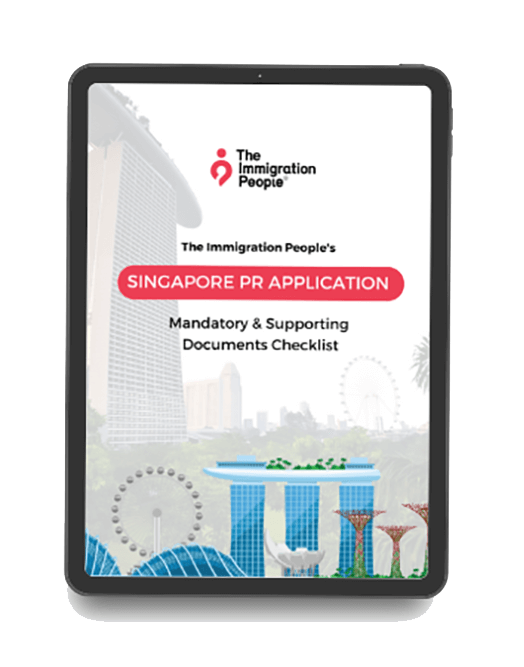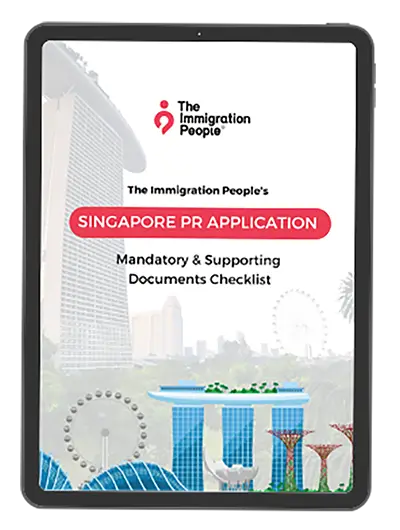Singapore has long been regarded as one of the most desirable destinations for foreign nationals and expats due to its thriving economy, high quality of life, and multicultural society.
The government's immigration policies are designed to attract foreign talent to help boost its economy, moderate the impact of Singapore's growing ageing population and tackle our country's low birth rates. At the same time, immigration authorities constantly implement changes in policies and criteria to regulate the number and types of immigrants allowed into the country.
Despite a 6.3% growth of Singapore PR in 2022, there have been increasing challenges in obtaining Singapore permanent residency in recent years.
This article explores why it may be more difficult to get PR for foreign Indian nationals in Singapore and the benefits of obtaining PR status in the city-state.
We will also discuss some of the strategies that Indians can employ to increase their chances of attaining the Singapore Permanent Resident status and the overall impact on their lives.
Can Indian Nationals Adapt Well in Singapore?
The city-state boasts a strong economy and business environment, with low taxes and high wages, making it an attractive workplace. As seen in the graph below, there are three major ethnic groups in Singapore: Chinese, Malays and Indians.

Thanks to Singapore's multicultural society, Indian expats can expect to assimilate into Singapore well, making it an ideal destination for Indian nationals looking to settle down permanently.
Our Indian clients commonly share that they find it easy to adapt in Singapore as they can still connect with their culture, food and many festivals, events and places of worship catering to the large Indian expatriate community.
With access to excellent healthcare, education systems, low crime rates, political stability, modern infrastructure and transport links, it is no wonder why so many Indians choose Singapore as their safe haven.
What Is It Like Working in Singapore as Indian Expats?
Working in Singapore as an Indian national is a dream come true for many. To work here, one would require a Singapore work pass. Examples of work passes are:
- S Pass
- Employment Pass (EP)
- Personalised Employment Pass (PEP)
- Overseas Networks & Expertise Pass (ONE)
Each work pass has different eligibility requirements and salary criteria for all foreigners who wish to work here. And Indian nationals who hold any of the work passes mentioned above and want to reside in Singapore permanently can apply for Singapore PR.
The growing demand for digital economy and technology sectors drove the number of Indian employment pass holders in Singapore from 14% in 2005 to 25% in 2020 - signifying a favourable need for tech talent, rather than, particularly, 'Indian Talents'.

Despite the need to fill talent gaps, the spike of Indian expats in Singapore sparked social friction amongst Singapore citizens who perceived their presence as a 'threat' to their employment opportunities.
Understandably, a selective immigration policy is needed to cope with the underlying matter, ensure cohesiveness in Singapore's workforce, and, most importantly, fair hiring.
Types of Routes to Obtain PR in Singapore
Generally, Singapore offers several routes to permanent residency for eligible Indian national applicants, depending on your circumstances:
-
Singapore PR through Professional, Technical Personnel and Skilled Workers (PTS) Scheme
This route is for Indian expats, with a work pass status (like S Pass or EP).
-
Singapore PR through Sponsored Scheme
A Singaporean or Singapore PR can sponsor their spouse and/or any unmarried child(ren) below 21 years of age (legally yours or legally adopted).
-
Singapore PR through Foreign Students Scheme (FSS)
For foreign students studying in Singapore.
-
Singapore PR through Foreign Artistic Talent (ForArts) Scheme
Recognised or reputable international arts professionals with a track record of local engagements.
-
Singapore PR through GIP
For eligible foreign entrepreneurs, business owners and investors keen to start a business or invest in Singapore.
No matter which Singapore PR route you are aiming for, it is vital that you plan and do your prior research on how you can contribute positively to the economy.
With dedication and focus, Indian nationals can obtain Singapore Permanent Residency!
What are the Chances for Indian Nationals to Obtain Permanent Residence Status in Singapore?
From statistics shared earlier, it suggests that Indians have been successful in obtaining the Singapore Permanent Resident status in Singapore.
Firstly, it is due to the growth of certain sectors (especially when Singapore is on track to be a smarter nation) and secondly, the shortage of Singapore's local talent pool.
As such, Indian nationals should be strategic in their approach and ensure they have the right set of qualifications and skills necessary to increase their chances of success.
All work pass holders in Singapore have to meet the same criteria before they are allowed to enter the labour market, stressed Dr Tan, adding that there is no differentiation based on nationality.
Singapore also welcomes wealthy foreign entrepreneurs, investors or business owners to establish themselves here. This group of individuals can consider investing or setting up a family office to be Singapore PRs through the Global Investor Programme (GIP). Although it is the 'fastest route' to gain PR status, the eligibility criteria are much more demanding.

Over the years, competition for the Singapore Permanent Resident status has gotten fiercer amongst applicants from all backgrounds and nationalities.
In our years of experience, it is safe to say that more than talent or a high salary is needed to gain PR approval. We have seen many outstanding profiles getting their Singapore PR application rejected. Applicants must also stand out regarding financial, social and economic contributions to Singapore, length of stay, family ties, etc.
Additional documents such as a cover letter and testimonials from locals could further increase your chances and demonstrate your strong desire to be a Singapore permanent resident.
In conclusion, obtaining Singaporean residency for Indian nationals may not be more challenging than for other nationalities. Still, due to the ethnic composition quota, competition is relatively much harder for Indian nationals against each other.
Where can I engage a professional immigration specialist?
A professional immigration service provider like The Immigration People has a wealth of Singapore immigration knowledge and experience to ensure you can showcase your profile most effectively.
With the help of experienced immigration consultants, you can have peace of mind that your Singapore Permanent Residence application will be managed with much precision and care.
From properly assessing your eligibility, preparing your error-free application and managing the entire process for successful outcomes, our team can make your Singapore PR application process much more straightforward and stress-free.

We have helped thousands of satisfied foreign clients from various countries, including India, achieve their Singapore PR status!
Would you like to take advantage of all the benefits of having a PR status in Singapore, such as access to public housing, education bursaries, employment rights, better employment opportunities, healthcare subsidies and more?
Book a complimentary one-on-one consultation to discover your chances and personalised strategies to maximise your success chances!
Frequently Asked Questions On Is It Harder To Get PR for Indians in Singapore?
Is it easy to get PR in Singapore?
Strict immigration policies and eligibility criteria, tight competition and limited quota, make obtaining Permanent Residence in Singapore difficult.
Can Indians get Singapore citizenship?
Yes, Indian Singapore PRs can get Singapore Citizenship. After at least two years as a Singapore PR, all PRs can apply for Singapore Citizenship!
Immigration approvals are not based on nationality but on ethnic composition quota.
Indian Singapore PRs would still be fairly evaluated based on factors such as economic and social contributions, duration of stay in Singapore and investments are some examples.
That said, Singapore citizenship approval is generally more challenging to obtain due to the higher expectations of their applicants.
How long do you have to be in Singapore to get PR?
If you are considering applying for PR through the PTS scheme, you must reside and work in Singapore for at least six months.
It is recommended for the others applying through other routes (except GIP) to be physically in Singapore for at least six months too. Still, seeking professional advice based on your unique circumstances is best.
What are the benefits of Singapore PR?
Acquiring Singapore PR status provides access to the various benefits and rights Singaporean citizens enjoy.
Permanent residents of Singapore have the freedom to live, work, study, and purchase government and private properties in the country. They are also entitled to benefits such as visa-free travel, priority entry to the public education system for their children, and the ability to switch employers without needing a new work pass. Additionally, PRs may experience career advancement and a higher monthly salary.



